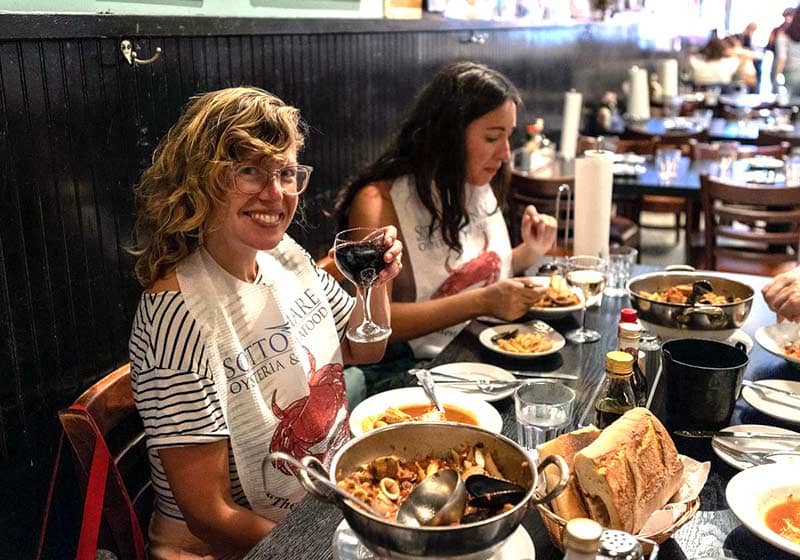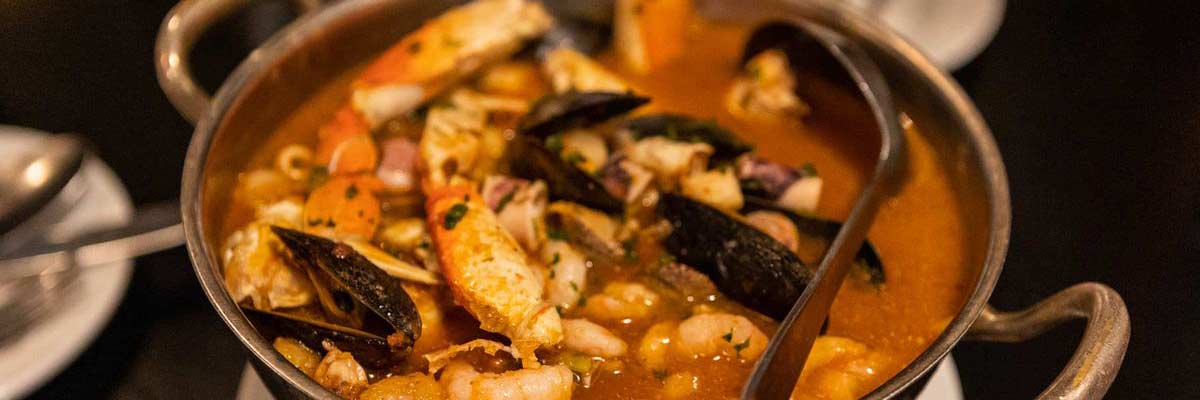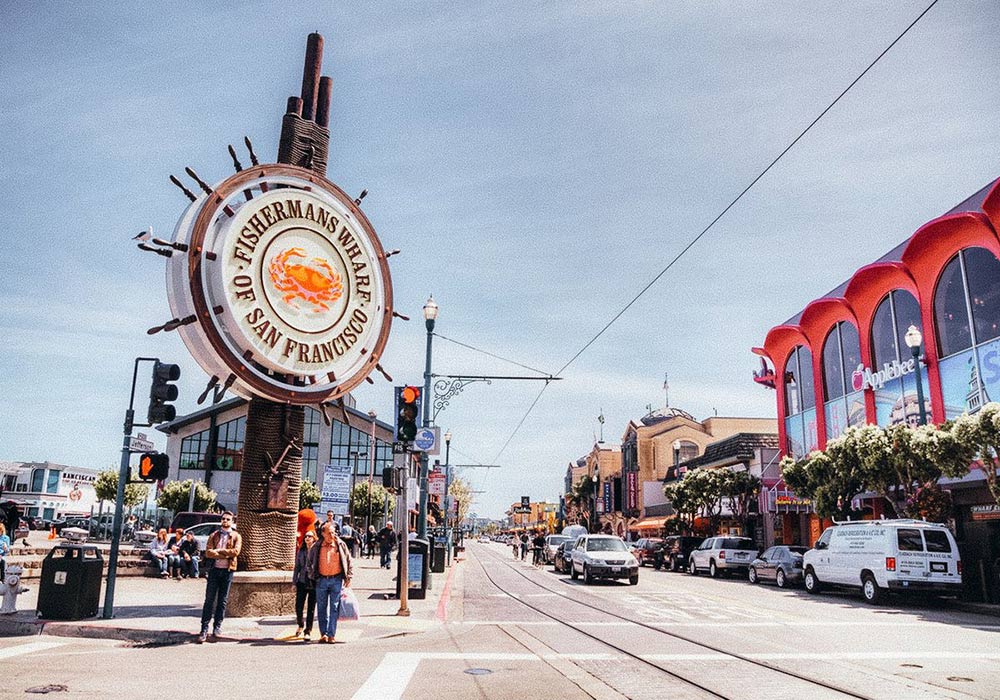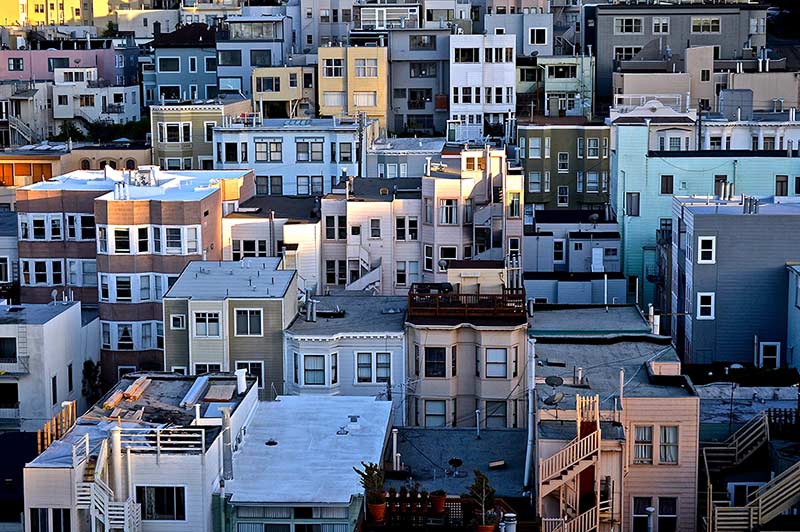LLocated close to Chinatown in northeastern San Francisco near Telegraph Hill, the Financial District and Russian Hill, North Beach was once home to one of the most important Italian immigrant communities in the United States.
Although there isn’t actually a beach to be found there today, the neighborhood is still called North Beach because there actually was a beach there before it was filled in the 19th century. In spite of this, the name managed to stick.
Today, North Beach is a vibrant neighborhood teeming with excellent Italian restaurants and cafés, delightful boutiques and bookstores, terrific live music venues, and a vibrant nightlife, most of which are clustered around Columbus Avenue. Nearby city landmarks include the historic Coit Tower, an observation deck that provides 360-degree views of the city and bay, including the Golden Gate Bridge. Nestled between Fisherman’s Wharf and Chinatown, it is a bustling area that draws locals and tourists in equal measure.
It’s home to Caffè Trieste, the West Coast’s first espresso bar and the Beat-era City Lights Bookshop, and the annual North Beach Festival, one of the Bay Area’s favorite summer street festivals.
Victoria Bakery, founded in 1911, should be put on your list of places to visit for a range of classic Italian pastries, from Napoleons to cannoli to slices of Princess cake which are known to be life-changing.
Although the area’s Italian-American population has drastically declined since the 1950s, to this day its Italian heritage is still very visible. Aside from the quaint Italian signage and storefronts, not to mention the many neighborhood mom-and-pop shops, North Beach boasts endless delicious Italian eateries, such as the ever-popular Golden Boy Pizza and Italian Homemade Company.
How did North Beach come to be San Francisco’s Little Italy?
Long before Italian immigrants flocked to the area and remade it in their own character, North Beach was an immigrant neighborhood. In the late-19th century, immigrants from Ireland, Russia, Germany, France, and Eastern Europe settled in North Beach, each leaving indelible marks on the neighborhood they called home.
After the great fire and earthquake of 1906, most of the latter moved away, even as Italian migration to the area rapidly increased. By the 1920s, North Beach had been essentially transformed into San Francisco’s Little Italy, with most of its residents proudly claiming Italian ancestry with over 30 percent of all residents of the area having been born in Italy.
How did Italian immigrants help shape the neighborhood of North Beach and the city as a whole?
In the 20th century, the North Beach Italian community played a prominent role in shaping the economy of San Francisco.
Banca d’Italia (today known as Bank of America) was the first Italian bank on American soil. Established in 1904 by Amadeo P. Giannini, the son of Italian immigrants from Liguria, Banca d’Italia started the business out of a converted saloon.
After the San Francisco earthquake of 1906, Giannini managed to recover money locked in the bank’s vault—a tremendous stroke of luck. As such, the bank was one of the few that was able to continue to make loans after the disaster, when loans were in particular demand. Banca d’Italia also was the first to give out loans to low-income immigrant families, during a time when loans were mostly the purview of the wealthy, helping small businesses and the working people of North Beach.
Over the years, San Francisco has had many politicians with Italian heritage, including three Italian American mayors.
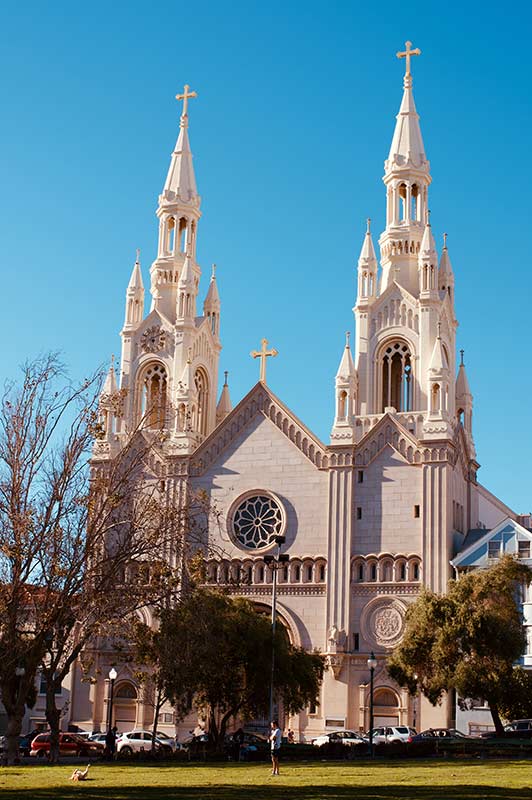 Who are some of the most famous people from Little Italy, San Francisco?
Who are some of the most famous people from Little Italy, San Francisco?
Born to Italian Sicilian immigrants in 1914, baseball legend Joe DiMaggio grew up in North Beach and married his first wife at the neighborhood’s famous Saints Peter and Paul Church, across from Washington Square Park. San Francisco’s North Beach Playground was even renamed the Joe DiMaggio North Beach Playground in 2000, in honor of the fact that it’s the place the star athlete first picked up a baseball bat.
Italian-American director Francis Ford Coppola fleshed out the bulk of his iconic screenplay for The Godfather in Caffe Trieste, an Italian café that opened in 1956. One of North Beach’s most beloved spots to get a solid cup of coffee, it also lays claim to being the first coffeehouse to serve espresso on the West Coast.
As if that weren’t enough to write home about, the café also boasts a close association with the Beat Generation subculture, one of America’s most important literary influences. Beat writers and poets Allen Ginsberg, Neal Cassady, Jack Kerouac, and Lawrence Ferlinghetti all got their buzz at the Italian café, and the latter even set up his famous City Lights bookstore just around the corner.
Little Italy in San Francisco is one of the most charming areas with a rich history. Do not miss out on the opportunity to immerse yourself in the culture and lose yourself in the streets enjoying its tranquility.
Original post date: December 28, 2022

 Discover Experiences Near Me
Discover Experiences Near Me
